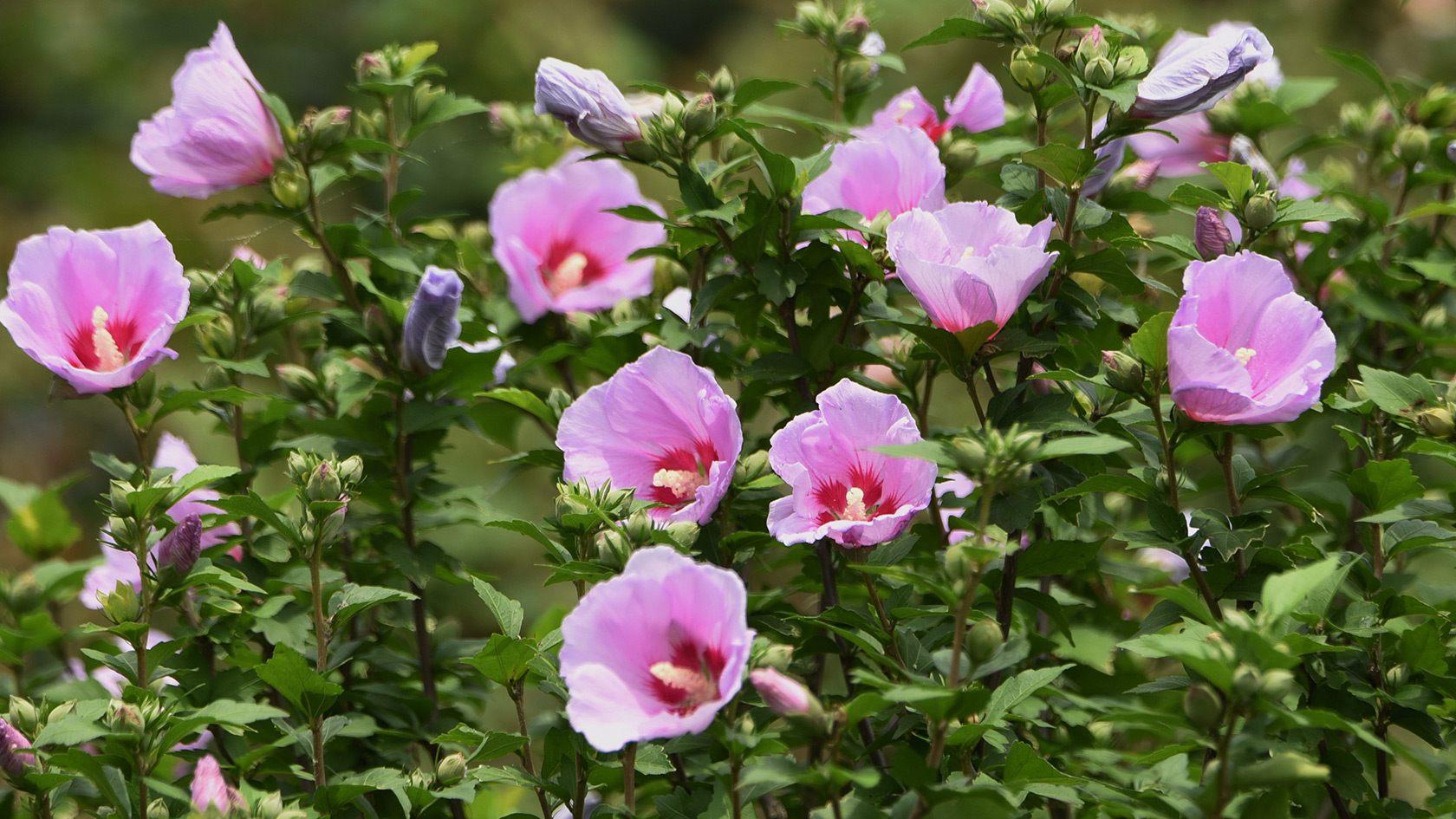The Foundation distributes Mugunghwa flowers
to make them part of everyday life, and supports
research and development of diverse varieties
of the national flower.
Due to the misconception that Mugunghwa is susceptible to aphids and other harmful insects, it has become increasingly difficult to find Mugunghwa flowers in our surroundings, and the few that we do see are often neglected, growing behind apartment fences and school buildings. As a result, Mugunghwa has come to be perceived as an “unattractive flower” by many. Moreover, a large number of children and young people only know it as a flower mentioned in the national anthem without actually seeing or encountering Mugunghwa in real life. To rectify this situation, LG Evergreen Foundation has signed an MOU with the Korea Forest Service to support the distribution of Mugunghwa and research on new varieties for the purpose of promoting “Korea’s beautiful national flower.”
By planting Mugunghwa flowers in everyday surroundings as well as in the grounds of elementary, middle, and high schools nationwide, the Mugunghwa Distribution Project brings the beauty of the national flower closer to people. Verified saplings and seedlings from the Korea Forest Service are grown in the vicinity of Hwadam Botanic Garden. When they reach about one and a half meters, the trees are sent to selected schools across the country. LG Evergreen Foundation supports the entire process, from cultivating the saplings to planting them in different schools. In addition, pesticides and management manuals are provided to ensure that the schools can easily manage the Mugunghwa trees in the future.
The New Mugunghwa Variety Research Project is a five-year research project conducted in collaboration with the Korea Forest Research Institute from 2020 to 2024. The project aims to develop new Mugunghwa varieties that can be easily grown in households and indoor settings with limited sunlight and ventilation. As the first research of its kind, it poses a challenging task. However, LG Evergreen Foundation and the Korea Forest Research Institute promise to do their utmost to develop new Mugunghwa varieties that can be cherished and kept close at hand.






